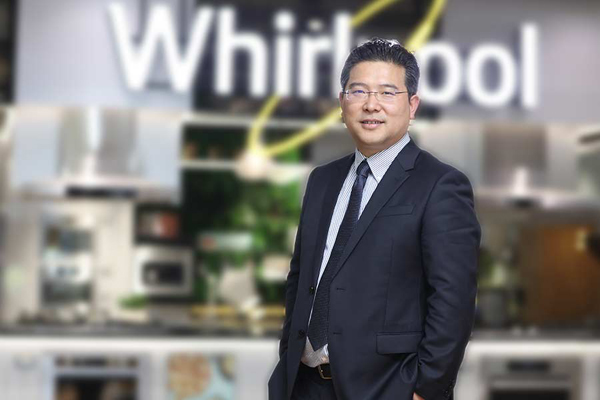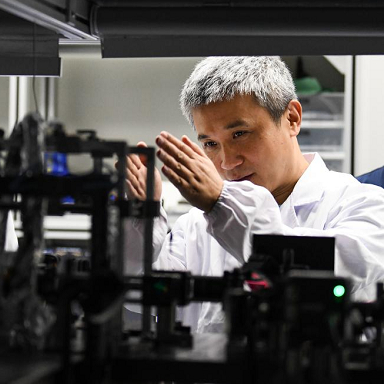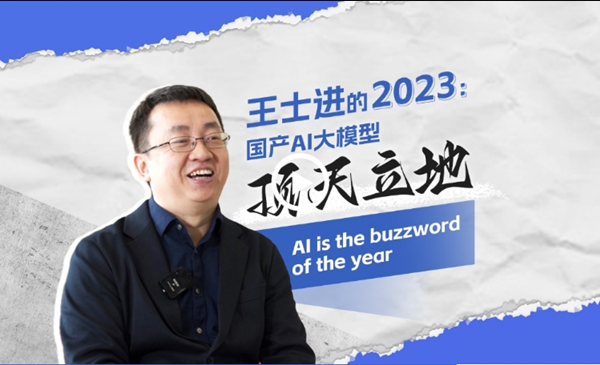Smartening appliances for China

Ai Xiaoming, president of Whirlpool Corp's China unit, believes what the company needs to do is not localize its brand but maintain its international standard. [Photo provided to China Daily]
Ai Xiaoming-led Whirlpool is shifting gears and preparing to impress Chinese consumers afresh
Ai Xiaoming's ambition is to make Whirlpool an appliance brand to reckon with China. As president of Whirlpool Corp's China unit, he heads a key operation of one of the world's largest home appliance makers.
Success in the large Chinese mainland market is critical to the company's future, and Ai is intent on boosting Whirlpool's relatively small market share and slow growth in China.
The Michigan, United States-headquartered firm has based its China branch and research and development center at the Hefei National High-tech Industry Development Zone, Anhui province this May, one of the three largest white home appliance production clusters worldwide.
In the embedded kitchen appliances segment, Whirlpool commands a 60-percent market share in the US, around 30 percent in Europe and around 20 percent in India. But, in China, a huge market with numerous leading domestic and international players such as Siemens AG, Midea Group, Haier Group and Gree Electric Appliances, the corresponding figure is in single digits.
Ai, 44, however, is undaunted. With years of experience, including in leadership positions at various manufacturing multinationals, he exudes resilience in the face of stiff challenges.
"Competition in the home appliance sector is highly fierce in China. In terms of volume, the market demand in China has entered a stable and mature stage after a slight drop recently. But in terms of value, the market scale of China is growing constantly at 4 to 5 percent annually," he said.
"Consumer products were among the sectors that were opened up quite early in China. Chinese brands are fast in their innovations of products. Our company is like a car that is shifting gear and using stored-up power, and we are waiting to accelerate and reach the full speed," Ai said.
"As a US company, what we need to do is not localize our brand but maintain our international standard."
China's home appliances market, he said, saw explosive growth a bit prematurely, so has been stable for a while now. But, given the consumption upgrade and Chinese consumers' pursuit of high-quality lifestyles, the appliance market has evolved to a stage where products need to be customized and smart, with focus on quality and value offered to the consumer.
Although Whirlpool entered the China market in 1994, its scale did not increase much in recent years. "There were some deviations in our business operations. We tried to keep lowering the costs and didn't do enough promotions. Our brand awareness is relatively low in China, and we are kind of passive."
With a new management team in place now, Ai has drawn up a three-year growth plan. He is restructuring the organization as well as the product portfolio, retiring appliances that did not make enough money for Whirlpool. He said a clear and distinct vision for the long term could help relieve short-term pain and make the company successful in the long run.
Last year, Whirlpool suffered a loss in China. In the first quarter of this year, however, it was back in the black, and has stayed the course.
Whirlpool's Hefei center has about 300 researchers. About 20 percent of products they help develop, particularly refrigerators and washing machines, are exported to more than 20 countries. Next, Whirlpool will endeavor to improve the design of its products and research how to enhance user experience, he said.
Toward this end, Ai invites about 10 staff representatives from different departments every week for lunch or dinner, during which they brainstorm, a process that also helps improve organizational communication.
"Whirlpool's talent decides the development path. My management style is straightforward, and we need results, efficiency, and excellence. I communicate my ideas, which helps build a new sense of worth. I underline that we should actively respond to market changes."
Ai has lived in Hefei for more than a year, while his family lives in Shanghai, about 450 km away. Whenever his schedule permits, his weekends are marked by three-hour high-speed train rides to and from Shanghai. He said he could meet his wife and their child just three times this summer.
"I don't have much spare time now. The company is undergoing adjustments. At this juncture, the management team needs to communicate and control a lot of details, otherwise the result might be not ideal," he said.






